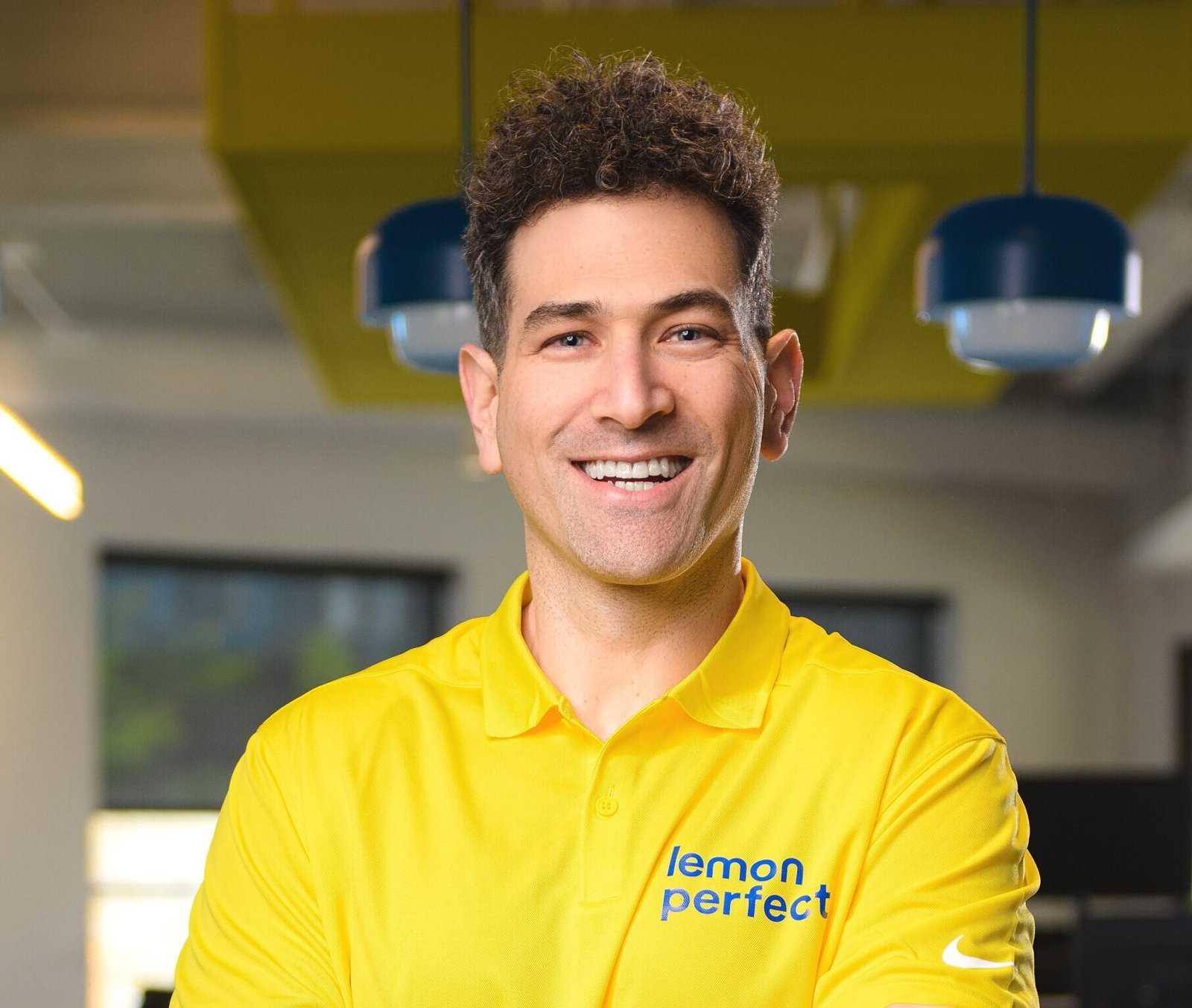I recently went one on one with Robert Nickell, founder and CEO of Rocket Station.
Adam: Thanks again for taking the time to share your advice. First things first, though, I am sure readers would love to learn more about you. How did you get here? What experiences, failures, setbacks or challenges have been most instrumental to your growth?
Robert: I started my entrepreneurial journey as a realtor and real estate investor in Dallas. After 18 months in the business, I had achieved enough success to focus on investing and only took listings if the homes were valued at $1 million or more. By then, I was clocking 80 hours a week and had zero time for a personal life or my family. I had become a slave to the business, instead of owning a business to fund the life I wanted.
My solution was to hire people, namely friends and family. But I had never managed people before, so I did not provide them structure or clarity to be successful. I started to blame them and complain that I couldn’t find “great talent” when I was actually the problem. My expectations were misaligned with reality.
The pain of not being able to manage people sparked my interest in learning the logic behind process – how work actually gets done, and how you can do it better to increase productivity.
Adam: How did you come up with your business idea and know your business idea was worth pursuing?
Robert: The grind of daily tasks and missing family events drove me to search for a better way. One of my mentors was leveraging talent from overseas to do almost everything in his business on a phone or computer. I became intrigued and started to hire remote assistants to help me.
Like I said, I had never been a great people manager; eventually, that applied to hiring and managing them remotely as well. After several failures on my part, I realized I was doing it completely wrong. I was thinking about the task first without the end in sight; my entire process was backwards.
I realized that you have to work backward from any objective – whether it’s an annual revenue goal or a 30-minute sales call. I learned that clear processes and systems were the foundation of achievement. Once I had clearly defined and documented every single task for my business, hiring and managing the right people became possible. I soon started helping other entrepreneurs to define their processes and workflow. As their businesses became more productive and profitable, I knew I had something big.
What advice do you have for others on how to come up with and test with great ideas?
Robert: If you’re experiencing challenges and setbacks, chances are you’re not the first or last person to have that experience. Entrepreneurs can find the market opportunity amidst the pain. If you can efficiently solve people’s problems or help businesses become more efficient or profitable, then you have something special. I believe great opportunities are all about creating value.
Also, no one is entitled to success. Just because you show up doesn’t mean people will want to give you their money. I’ve met many business owners who can’t fully explain how their products help their customers or prospects; they think that because they’ve worked hard, people will flock to them. But the priority is not us, the entrepreneurs. It’s about our customers and our customers’ customers.
Adam: What are the key steps you have taken to grow your business? What advice do you have for others on how to take their businesses to the next level?
Robert: For the first several years as an entrepreneur. I was responsible for far too many of the day-to-day tasks. I was the bottleneck to progress and this restricted business growth. As a result, my professional reputation took a hit – I couldn’t fulfill at the desired level because I had too much on my plate.
Once I created systems and processes for both my daily tasks and also for hiring and managing people, I was able to scale my business. Only after you infuse your organization with clarity and structure will you see positive results.
My advice: get out of your own way. Leadership is about empowering people, not micromanaging.
Adam: What are your best sales and marketing tips?
Robert: Speak to your clients about their needs and wants, and not about your product or service. People don’t care about you – the entrepreneur or sales exec. They care about what you can do for them. Once you understand the outcomes people want, sales become automatic.
As the cliché goes, “People don’t want the drill. They want the hole.” This is such an important message if you really understand and apply the concept. Marketing is all about finding ways to communicate to the right people in the right way. Are you selling drills or are you selling perfect holes?
Adam: What should leaders understand about the future of the workplace?
Robert: The pandemic has accelerated the digital, virtual lifestyle. We have all experienced the change as professionals working from home and as consumers buying things online.
The pandemic has also accelerated the adoption of high-performing, remote and international teams. Even as we look forward to a post-vaccination “return to normal,” some companies are planning to let employees work remotely or come into the office just a couple days a week. Twitter CEO Jack Dorsey has famously said his employees can work remotely forever.
In terms of managing remote and virtual teams, the “new normal” is here to stay. Organizations are using myriad tech tools and platforms to keep employees engaged, healthy and productive. It has never been more important to have clear processes and systems in place. Business owners and managers need to ask themselves two critical questions: Are you empowering your teams to create desired outcomes? Are you micromanaging tasks or inspiring them to achieve? The best leaders will figure out how to motivate people to perform at their best, whether they continue to work remotely or go back to the office once it’s safe to do so.
Another positive aspect of virtual work is the extra dose of empathy in our lives – for the first time in modern history, the entire world went through a pandemic and experienced lockdown. In countless Zoom sessions around the world, professionals have heard children in the background or watched a colleague hold a toddler on her lap while leading a meeting. Regardless of corporate title, we seem to have a collective appreciation for a simple fact: we are more than workers: we’re humans first.
Adam: How can leaders best manage a remote workforce and create a winning culture while leading remote teams?
Robert: Great culture is like a rotating circle — people, processes and performance move in the same direction in support of a company’s values.
Powering the circle are clearly defined expectations, which all team members follow. This dynamic creates professionalism, accountability, healthy boundaries, and career paths. When teams are remote – as most are these days, because of the pandemic – this theory gains even more credence.
As organizations continue to manage remote teams, they are being asked to reassess their internal cultures: how do you sustain belief in a corporate brand, and keep people on task, when no one sees each other face to face?
“Overcommunicating” has become the business buzzword for our times. But if communication is necessary, it’s not superfluous. From daily updates on Slack to global town halls on Zoom, organizations are working hard to maintain cohesion in unprecedented times. No matter how spread apart, teams need to feel free to celebrate all wins, and all challenges, every day.
Adam: In your experience, what are the defining qualities of an effective leader? How can leaders and aspiring leaders take their leadership skills to the next level?
Robert: Leadership is empowerment, not management. I believe that leaders only have a few roles: empower the teams with the resources they need and provide guidance and expectations about what the outcomes should look like. The way to take your leadership to the next level is to hire people who are better than you at everything that happens in the organization and let them shine.
Adam: What are your three best tips applicable to entrepreneurs, executives and civic leaders?
Robert: You’ve phrased your question astutely: entrepreneurs and executives should be civic leaders. We should be just as concerned about purpose as profit, demonstrating our commitment to taking care of the communities where we do business.
In that spirit, here are my three tips for the private sector:
-
Common Good. If you haven’t already, identify what it means to take care of the “common good” at your company. What galvanizes you and your employees? Is it a healthy environment, hungry children, local arts? Align your organization with a nonprofit in this area. In addition to financial support, think of creative ways you can support this cause. Can you write about the nonprofit and the people it serves on your blog? Or share their content on social media? Co-host a Zoom happy hour? It’s all of the above, in my mind.
-
Having spoken to myriad businesses across the country, we know that some are recouping 2020 losses while others are taking advantage of new opportunities brought on by the unprecedented growth in e-commerce. Whatever the situation, cost-effective, virtual teams are a critical component to sustained growth.
-
Putting people first is the best way to cultivate positive culture and brands. Perhaps one of the best outcomes of the pandemic is that team members are realizing they are human beings first, workers maybe third or fourth. We all have personal lives, families, loved ones. Whether it’s hearing a child in the background on a Zoom call or realizing everyone’s need for self-care, we seem to have developed a collective understanding that we all do more than “work” in a workday.
Adam: What is the single best piece of advice you have ever received?
Robert: “Control but delegate.” I’m aware of everything that happens inside my company, and I’ve approved processes and plans to generate success. But I’m not responsible for implementing any of the day-to-day tasks. As much as we may want to get involved in every aspect of the business, we need to empower team leaders and managers to excel. It’s the only way to truly grow at an exceptional pace.









